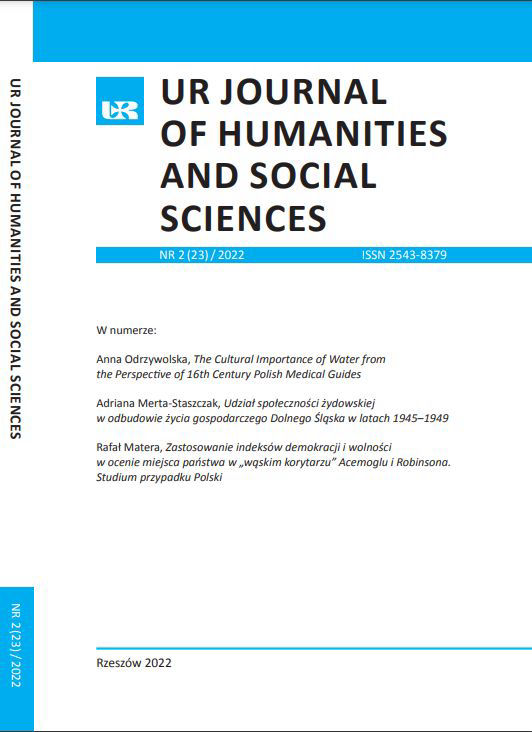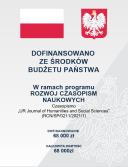Kulturowe znaczenie wody z perspektywy XVI-wiecznych polskich przewodników medycznych
DOI:
https://doi.org/10.15584/johass.2022.2.1Słowa kluczowe:
woda, przewodniki medyczne, historia medycynyAbstrakt
Woda od najdawniejszych czasów miała szczególne znaczenie kulturowe w życiu człowieka. Była tanim i dostępnym dla każdego dobrem. Przez wieki spełniała wiele funkcji. Ludzie wierzyli nawet w jej magiczne działanie. Miała też efekt symboliczny – oczyszczała ciało z grzechów. Jednak w omawianym okresie w zachodniej Europie zaczęto uważać, że picie wody jest szkodliwe dla zdrowia. Mimo takiej opinii w XVI w. wodę pitną w Polsce pili najbiedniejsi chłopi i mnisi żyjący w ciężkim rygorze klasztornym, ale też monarchowie z dynastii Jagiellonów, którzy obawiali się trucizny. Jednak bogatsze warstwy społeczne piły piwo lub rzadziej wino. Wierzono, że stojąca woda (w zbiornikach) rozprzestrzenia epidemie. Autorzy poradników medycznych twierdzili, że picie takiej wody może powodować bezpłodność, czerwonkę i inne choroby. Dopiero gotowanie wody było sposobem na poprawę jej właściwości. Aby wyeliminować nieprzyjemny zapach, dodawano czosnek, sól i ocet. Z Azji od Tatarów przybył zwyczaj dodawania tzw. zioła tatarskiego, zwanego później tatarakiem. Do wody dodawano również inne zioła (np. miętę, szałwię). Bardziej ceniona była woda płynąca („woda żywa”), gdyż uważano, że picie takiej wody jest zdrowsze.Downloads
Download data is not yet available.
Pobrania
Opublikowane
2022-06-30
Jak cytować
Odrzywolska, A. (2022). Kulturowe znaczenie wody
z perspektywy XVI-wiecznych polskich przewodników medycznych. UR Journal of Humanities and Social Sciences, 23(2), 5–20. https://doi.org/10.15584/johass.2022.2.1
Numer
Dział
Artykuły
Licencja
Prawa autorskie (c) 2022 Wydawnictwo Uniwersytetu Rzeszowskiego

Utwór dostępny jest na licencji Creative Commons Uznanie autorstwa – Użycie niekomercyjne 4.0 Międzynarodowe.



